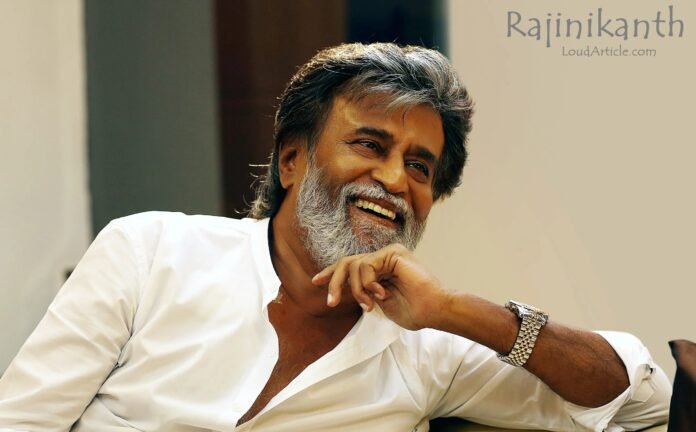Rajinikanth as Shivaji Rao Gaikwad born on 12 December 1950 is an Indian actor, producer and screenwriter in Tamil cinema. In his career of five decades, above 160 films that includes films in Tamil, Hindi, Telugu, Kannada, Bengali, and Malayalam. He is widely regarded as one of the most successful and popular actors in the history of Indian cinema. He is nown for his uniquely styled lines and idiosyncrasies in films. The Government of India honoured him with Padma Bhushan in 2000, Padma Vibhushan in 2016. India’s third and second highest civilian honours, and Dadasaheb Phalke Award in 2019 for his contributions to Indian cinema.
Rajinikanth
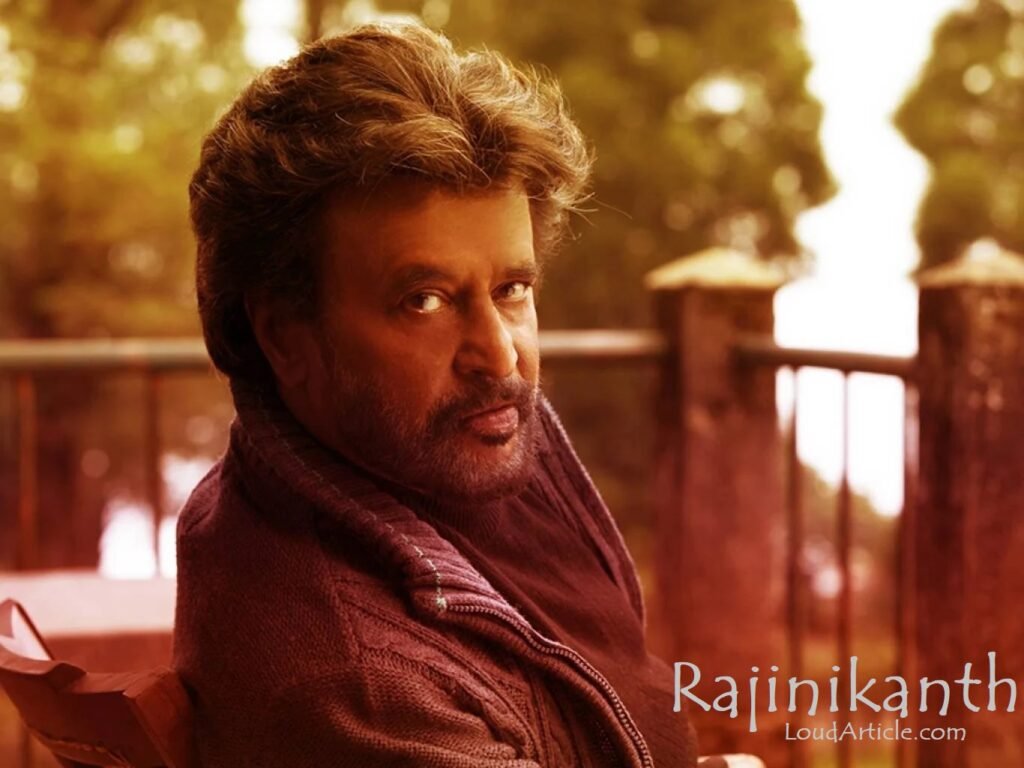
| Born | Shivaji Rao Gaikwad 12 December 1950 (age 72) Bangalore (present-day Bengaluru), Mysore State |
|---|---|
| Other names | Rajini, Rajni, Superstar, Thalaivar |
| Alma mater | Adyar Film Institute |
| Occupations | ActorProducerScreenwriter |
| Years active | 1975–present |
| Spouse | Latha Rajinikanth (m. 1981) |
| Children | Aishwarya and Soundarya |
| Relatives | See Rajinikanth family |
| Awards | Dadasaheb Phalke Award (2019) Padma Vibhushan (2016) NTR National Award (2016) Padma Bhushan (2000) Kalaimamani (1984) |
About Rajinikanth
Rajinikanth in K. Balachander‘s 1975 Tamil drama Apoorva Raagangal. His acting career commenced with a brief phase of portraying antagonistic characters in Tamil film.
His major positive role as a scorned lover in S. P. Muthuraman‘s Bhuvana Oru Kelvi Kuri (1977), 1978’s Mullum Malarum and Aval Appadithan received him critical acclaim.
Read More: Salman Khan
The former earned him a Tamil Nadu State Film Award Special Prize for Best Actor.
Read More: Top 10 best laptops in india
He played dual roles in the action thriller Billa (1980), a remake of the Hindi film Don (1978).
His triple role in Moondru Mugam (1982), which give him a special prize at Tamil Nadu State Film Awards ceremony.
Read More: Top 10 best home appliance brands in India
He made his Bollywood debut with T. Rama Rao‘s top grossing Andhaa Kaanoon (1983).
Nallavanukku Nallavan (1984) won him that year’s Filmfare Award for Best Tamil Actor.

In 1980s his films in Tamil and Hindi. Padikkadavan (1985), Mr. Bharath (1986), Bhagwaan Dada (1986), Velaikaran (1987), Dharmathin Thalaivan (1988) and Hum (1991).
In 1991, Mani Ratnam‘s Tamil crime film Thalapathi, earned him major critical acclaim for his performance.
Read More: Top 10 places to visit in india
He collaborated with Suresh Krissna for many films including Annaamalai (1992) and Baashha (1995).
His other success includes P. Vasu’s Mannan (1992), Uzhaippali (1993) and K. S. Ravikumar‘s Muthu (1995) and Padayappa (1999).
Read More: Lose weight in 10 simple steps in one month
After he return to acting with the comedy horror film Chandramukhi (2005). It went on to become again the highest-grossing Tamil film.
His next, S. Shankar’s Sivaji (2007) was the third Indian film to enter the 100 Crore Club.
Early life and background of Rajinikanth
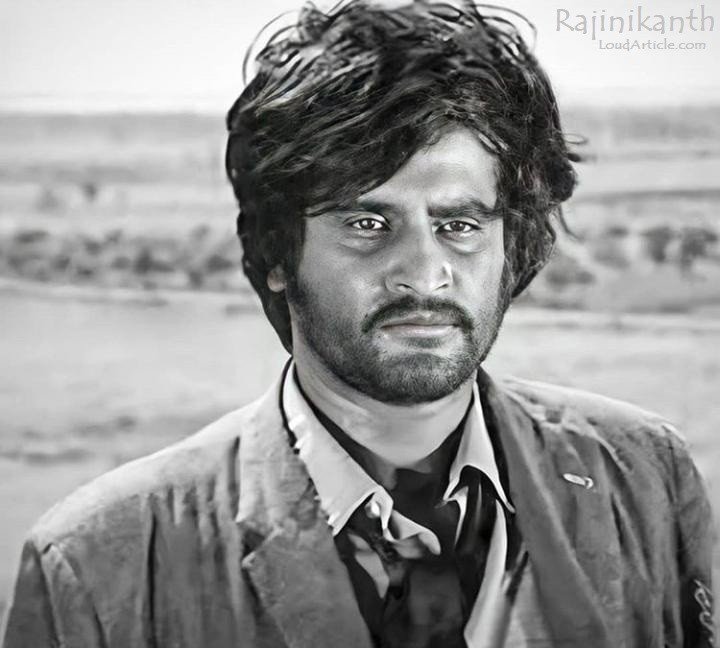
Rajinikanth was born as Shivaji Rao Gaekwad on 12 December 1950 in a Marathi family in Bangalore, Karnataka State.
His mother was a homemaker and his father Ramoji Rao Gaekwad was a police constable. His ancestors hailed from Mavadi Kadepathar, Pune, Maharashtra.
Read More: Top 10 mobiles in india
He is the youngest of four siblings in a family consisting of two elder brothers (Satyanarayana Rao and Nageshwara Rao) and a sister (Aswath Balubhai).
After his father’s retirement from work in 1956, the family moved to the suburb of Hanumantha Nagar in Bangalore and built a house there.
Read More: Top 10 benefits of morning exercise
He lost his mother at the age of nine. Rajinikanth had his primary education at the Gavipuram Government Kannada Model Primary School in Bangalore.
As a child, he was “studious and mischievous” with a great interest in cricket, football and basketball.

Rajinikanth‘s brother enrolled him at the Ramakrishna Math. Its a Hindu monastery set up by the Ramakrishna Mission.
In the math, he taught Vedas, tradition and history, which instilled a sense of spirituality in him.
His performance in the play received praise from the Kannada poet D. R. Bendre.
Read More: Top 5 best gadgets in india that will blow your mind
At sixth grade, Rajinikanth enrolled at the Acharya Pathasala Public School and studied there completion of his pre-university course.
Rajinikanth schooling at the Acharya Pathasala, he spent a lot of time acting in plays.
On completion of his school education, Rajinikanth performed several jobs including that of a coolie. He get a job in Bangalore Transport Service as a bus conductor.
Read More: Top 10 best gadgets in india
Acting career of Superstar Rajinikanth
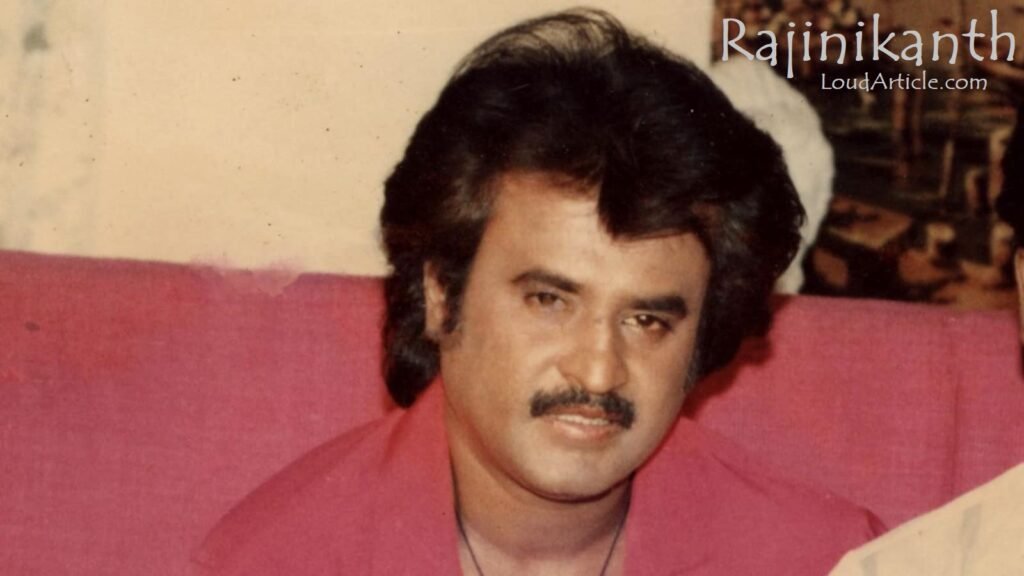
Early career of Rajinikanth from 1975 – 1977
Rajinikanth began his film career with the Tamil film Apoorva Raagangal (1975), directed by K. Balachander.
Rajinikanth was cast in a small role as the ex-husband of the female lead played by Srividya.
Read More: Sabyasachi Mishra
It received critical acclaim and won three National Film Awards including the Award for the Best Tamil Feature at the 23rd National Film Awards in 1976.
A review from The Hindu noted that: “Newcomer Rajinikanth is dignified and impressive”.
Read More: Top 5 best mobile phones in india with price
His next release was Puttanna Kanagal‘s Kannada anthology film Katha Sangama (1976).
Rajinikanth appeared in final segment of the film. He played the role as a village ruffian who rapes a blind woman in the absence of her husband.
Read More: Top 5 best places to visit in india
Balachander cast him in a pivotal role in Anthuleni Katha (1976), the Telugu remake of his own Tamil film Aval Oru Thodar Kathai (1974).

In Moondru Mudichu—the first Tamil film to feature him in a prominent role—he played a character that “blithely away” .
His friend drowns accidentally in the lake only to fulfill his desire to marry the former’s girlfriend.
His style of flipping the cigarette in the film made him popular among the audience.
In his final release of the year, Baalu Jenu, he was cast as the main antagonist who troubles the female lead.
He played similar roles in Balachander’s Avargal (1977), and Bharathiraja‘s 16 Vayadhinile (1977).
The same year, he made his first-ever appearance as a lead actor in the Telugu film Chilakamma Cheppindi (1977), which earned him his only nomination for the Filmfare Award for Best Actor – Telugu.
S. P. Muthuraman experimented Rajinikanth in a positive role in Bhuvana Oru Kelvi Kuri (1977).
Experimentation of Rajinikanth from 1978–1980
In 1978, Rajinikanth had 20 releases across Tamil, Telugu and Kannada.
His first film of the year was P. Madhavan’s Shankar Salim Simon, in which he was among the three leads.
His co-starred alongside Vishnuvardhan in the Kannada film Kiladi Kittu. He played the second lead in Annadammula Savaal, which starred Krishna.
Rajinikanth reprised his role from the Kannada original. He played an important role in the supernatural thriller Aayiram Jenmangal.
In Maathu Tappada Maga, he was the main antagonist. Bairavi, directed by M.Bhaskar, was the first Tamil film to cast Rajinikanth as a solo hero.

It was for this film that he earned the sobriquet “Superstar”. S. Thanu, one of the film’s distributors, set up a 35 feet (11 m) high cut-out of Rajinikanth.
The film marked the directional debut of Mahendran, with a screenplay adapted from a novel of the same name published in Kalki.
It won the Filmfare Award for Best Tamil Film and a Special Prize (Best Actor) for Rajinikanth at the Tamil Nadu State Film Awards.
The same year, he acted in Dharma Yuddam, in which he played a mentally-ill person avenging the death of his parents. He co-starred with N. T. Rama Rao in Tiger.
Upon completion of Tiger, Rajinikanth had acted in 50 films over a period of four years, and in four languages.
Aarilirunthu Arubathu Varai earned him his second nomination for the Filmfare Award for Best Actor – Tamil.
Breakthrough of Rajinikanth from 1981–1983
Raijinikanth, who credited Hindi film star Amitabh Bachchan as his inspiration, began playing Amitabh Bachchan’s roles in Tamil remakes of his films.
This began with Shankar Salim Simon (1978), a remake of Amar Akbar Anthony (1977), followed by Naan Vazhavaippen (1979), a remake of Majboor (1974).
He cast in a series of roles modelled after Amitabh Bachchan in Tamil remakes of his films.
Rajinikanth is in eleven Tamil remakes of Amitabh Bachchan films. A Telugu remake of Amar Akbar Anthony, Ram Robert Rahim (1980), with Sridevi.
The most successful of these were remakes of Salim–Javed films is Billa (1980), Thee (1981) and Mr. Bharath (1986).
Rajinikanth quit acting with the Tamil film Billa (1980). A remake of the Bollywood blockbuster Don (1978), written by Salim-Javed and starring Amitabh Bachchan.
In Billa, Rajinikanth playing dual roles and it became his first ever commercial success.
His pairing with Sridevi in Johnny, where he is cast in a double role, earned him his third nomination for the Filmfare Award for Best Actor – Tamil.
He starred in Murattu Kaalai which was a commercial success.
The success of Billa was a turning point in Rajinikanth‘s career, disproving detractors that claimed Rajnikanth was “finished” and which saw him accepted as a full-fledged hero.
Breakthrough of Rajinikanth from 1984–1985
The success of Billa established Rajinikanth as the top star of Tamil cinema, overtaking Kamal Haasan.
In 1981, he is Garjanai which was in Kannada and Malayalam, making it his film in those two languages to date.
In K. Balachander‘s first home production, Netrikan, he played dual roles as a womanising father and a responsible son.
His first full-length comedy was Thillu Mullu, directed by K. Balachander.
He agreed to do strong suggestion by his mentor that he should do non-commercial roles. To break the stereo typed action-hero mould by which he was getting famous at the time.
Thillu Mullu earned him his fourth nomination for the Filmfare Award for Best Actor – Tamil.
1981 saw the release of Thee, a remake of the 1975 Bollywood blockbuster Deewaar, originally written by Salim-Javed.
Breakthrough of Rajinikanth from 1986–1987
Starring Amitabh Bachchan; in Thee, Rajinikanth reprised the role of Bachchan in the original.
In 1982, he starred in Pokkiri Raja, Moondru Mugam, Thanikattu Raja, Puthukavithai and Enkeyo Ketta Kural.
Moondru Mugam which starred Rajinikanth playing three different roles for the first time, earned him his fifth nomination for the Filmfare Award for Best Actor – Tamil.
By 1983, he was a popular actor across South Indian cinema, including Telugu and Kannada films.
In 1983, he starred in his first Bollywood film, Andha Kanoon, alongside Amitabh Bachchan and Hema Malini.
The film went on to become one of the highest-grossing films of that time.
Breakthrough of Rajinikanth from 1988–1989
His 1984 film Naan Mahaan Alla, was directed by Muturaman and produced by K. Balachander. He acted in his first cameo role in the film Anbulla Rajinikanth.
He played a triple role in John Jani Janardhan. His performance in Nallavanuku Nallavan earned him his first and only Filmfare Award for Best Actor – Tamil.
In his 100th film Sri Raghavendra (1985), he played the Hindu saint Raghavendra Swami. His greatest success in Hindi films was his 101st film Bewafai.
Released in 1985 with Rajesh Khanna as the lead hero and Rajinikanth as villain, it became a success and grossed ₹119.5 million at the box office that year.
In the second half of the 1980s, Rajinikanth acted in commercially successful films like Naan Sigappu Manithan (1985), Padikkathavan (1985), Mr. Bharath (1986), Velaikaran (1987), Guru Sishyan (1988) and Dharmathin Thalaivan (1988), with Velaikaran earning him his seventh nomination for the Filmfare Award for Best Actor – Tamil.
In 1988, he made his only American film appearance in Bloodstone, directed by Dwight Little, in which he played an English-speaking Indian taxi driver.
Rajinikanth complete films including Rajadhi Raja, Siva, Raja Chinna Roja and Mappillai starring in Bollywood productions.
Raja Chinna was the first Indian film to feature live action and animation.
Commercial stardom of Rajinikanth from 1990–1993
By the 1990s, Rajinikanth established himself as a commercial entertainer. All the films released this period were highly successful at the box office.
He began the decade with a blockbuster in Panakkaran (1990), which was a remake of Amitabh Bachchan’s 1981 film Laawaris.
The film earned him his eighth nomination for the Filmfare Award for Best Actor – Tamil.
Rajinikanth next two Tamil films is fantasy comedy Athisaya Piravi which released in 1990 and the family drama Dharmadorai (1991), did above-average business at the box office.
Hum released in 1991 saw him doing the second main lead with Amitabh Bachchan became an inspiration for Baashha.
In 1991, he worked with Mani Ratnam in Thalapathi, which was heavily inspired by the Mahabharata.
He received his ninth nomination for the Filmfare Award for Best Actor – Tamil for the film.
Rajinikanth went on to appear in remakes of films from other languages, mostly from Hindi and Telugu.
Annamalai, which released in 1992, was a friendship-centric film and loosely based on the 1987 Bollywood film Khudgarz.
The film was the first to have a Super Star Title Graphic Card. He received his tenth nomination for the Filmfare Award for Best Actor – Tamil for the film.
Mannan, directed by P. Vasu, a remake of Kannada actor Rajkumar‘s 1986 blockbuster Anuraga Aralithu, was released in 1992 and became a box office success.
Rajinikanth wrote his first screenplay for the film Valli (1993), in which he made a special appearance.
Stardom of Rajinikanth from 1994–1997
He starred in the film Yajaman, in which he played the role of Vaanavaraayan, a village chieftain.
His romantic-comedy Veera (1994) was controversial for its climax and it went on to become one of the highest-grossing films in 1994.
That year, he earned his eleventh nomination for the Filmfare Award for Best Actor – Tamil for the action-drama Uzhaippali.
He joined hands with Suresh Krishna for Baashha (1995), which emerged as an industry record.
Routinely touted by fans and critics alike as a major-hit, as the film elevated him from being just very popular actor to nearly demigod status among the masses.
He made a cameo in Peddarayudu for his friend Mohan Babu and helped him in obtaining the remake rights.
Rajinikanth acted in a gangster film, Aatank Hi Aatank with Aamir Khan which is his Hindi film in a major role.
His film Muthu, a remake of Mohanlal’s blockbuster Malayalam film Thenmavin Kombathu, is a commercial success, directed by K. S. Ravikumar.
That became the first Tamil film to be dubbed into Japanese, as Mutu: Odoru Maharaja.
Stardom of Rajinikanth from 1998–1999
The film grossed a record US$1.6 million in Japan in 1998 and was responsible for creating a large Japanese fan-base for the actor.
Muthu’s success in Japan led American news magazine Newsweek to comment in a 1999 article that Rajinikanth had “supplanted Leonardo DiCaprio as Japan’s trendiest heartthrob”.
A visit to Japan in 2006, Indian Prime Minister Manmohan Singh acknowledged the success of Muthu in the country a speech, justifying the positive relationship between the two nations.
He received his twelfth and thirteenth nominations for the Filmfare Award for Best Actor – Tamil for his performances in Baashha and Mushu.
He entered Bengali cinema through Bhagya Debata, which was released at the end of 1995.
1997’s Arunachalam, a commercial success, earned him his fourteenth nomination for the Filmfare Award for Best Actor – Tamil.
Rajinikanth his film of the millennium with Padayappa (1999), which went on to become a blockbuster success, and earned him his fifteenth nomination for the Filmfare Award for Best Actor – Tamil.
It starred Ramya Krishnan and Soundarya, the former critically acclaimed for her performance. It was the prominent role for veteran Tamil actor Sivaji Ganesan.
Struggles, resurgence and acclaim of Rajinikanth from 2002–2006
After a pause, Rajinikanth starred in Baba in 2002, for which he written the screenplay.
Released with much fanfare and hype at the time, the film featured a story revolving around the reforming of a gangster.
Rajinikanth, revealed to be the reincarnation of the Hindu saint Mahavatar Babaji, and fights against political corruption.
It fell short of market expectations and the high bids reportedly translated to heavy losses for the distributors. Rajinikanth himself repaid the losses incurred by the distributors.
Pattali Makkal Katchi (PMK) leader S. Ramadoss condemned him for smoking and posing with beedis in the film.
Rajinikanth was criticised for spoiling the Tamil youth by glorifying smoking and drinking.
PMK volunteers attacked the theatres which screened the film and usurped film rolls and burned them.
In Two years, Rajinikanth signed up for P. Vasu‘s Chandramukhi (2005), a remake of the Malayalam film is Manichitrathazhu.
Upon release the film was highly successful at the box office.
Resurgence and acclaim of Rajinikanth from 2006–2010
In 2007 it set the record of being the longest running Tamil film.
Chandramukhi was dubbed in Turkish and in German as Der Geisterjäger and released in the respective nations.
Chandramukhi‘s release, it was reported that AVM Productions was set to produce a film directed by Shankar starring Rajinikanth – the largest collaboration yet for a Tamil film.
The film was titled Sivaji and was released in the summer of 2007, two years of filming and production.
It became the first Tamil film to be charted as one of the “top-ten best films” of the United Kingdom and South Africa box offices upon release.
Rajinikanth received a salary of ₹260 million (equivalent to ₹670 million or US$8.4 million in 2020), for his role in the film highest in his film career at that time.
He received his sixteenth nomination for the Filmfare Award for Best Actor – Tamil for his performance in the film.
The production of Sivaji, Soundarya Rajinikanth announced producing a computer-generated imagery film starring an animated version titled Sultan: The Warrior.
The film was set for release in 2008, it entered development hell, and its development status would become unknown over the next few years.
Acclaim of Rajinikanth from 2007–2015
Rajinikanth worked with P. Vasu for Kuselan, a remake of the Malayalam film Kadha Parayumbol, which was made in Telugu as Kathanayakudu.
In which Rajinikanth played an extended cameo role as himself, a film star in the Indian cinema, and as a best friend to the film’s protagonist.
According to Rajinikanth, the film somewhat narrated his early life. The film performed poorly at box offices and led to many distributors incurring major losses.
Rajinikanth stated that he would work with Pyramid Saimira again to compensate for Kuselan.
Rajinikanth worked again with Shankar for the science fiction film Enthiran.
The film was released worldwide in 2010 as the most expensive Indian film ever made, ultimately becoming the second highest-grossing film in India of its time.
He received his seventeenth nomination for the Filmfare Award for Best Actor – Tamil for his performance in the film.
The film’s success lead to the Indian Institute of Management Ahmedabad to use the film as a case study to analyse the business of cinema.
Its success story in a post-graduate elective management course called Contemporary Film Industry: A Business Perspective. The course would study Muthu.
In January 2011, Rajinikanth was slated to appear in Rana, a period film to be produced by Soundarya Rajinikanth and directed by K. S. Ravikumar, who would work with the actor for a third time.
The principal photography of the film on 29 April 2011.
On 21 May 2011, Aishwarya Rajinikanth released a photo of her and Rajinikanth in his hospital ward, both posing with a thumbs signal, responding to fans’ negative reaction to news reports.
Matured roles of Rajinikanth from 2016–2018
Rajinikanth’s next film was director Pa. Ranjith‘s crime drama Kabali, produced by S. Thanu. The film was released in July 2016.
The highest grossing Tamil film of the year grossing over ₹300 crore (US$38 million). It is the fifth highest-grossing Tamil film of being surpassed by his film 2.0.
Rajinikanth won five awards, at the Edison Awards, and two nominations at the 6th South Indian International Movie Awards.
He received his eighteenth nomination for the Filmfare Award for Best Actor – Tamil for his performance in the film.
In August 2016, it was announced that Rajinikanth and director Ranjith would work together again for a film with Dhanush as producer, titled Kaala.
In which Rajinikanth plays a Dharavi-dwelling gangster who fights against corporate takeover of the slum.
The film was officially released on 7 June 2018 and received positive reviews from critics.
In 2018 he appeared in S. Shankar‘s 2.0 reprising the roles of Dr. Vaseegaran and Chitti, alongside Akshay Kumar and Amy Jackson.
Rajinikanth earned over ₹117.34 crore (US$15 million) worldwide on its first day, which was the second-highest ever for an Indian film.
The film crossed ₹520 crore (equivalent to ₹591 crore or US$74 million in 2020) in its opening weekend to be the highest-grossing film worldwide for that week.
Grossed over ₹655.81 crore (US$82 million)–₹800 crore (US$100 million) at the box office became the highest-grossing Tamil film of the year and second highest grossing Tamil film of all time.
2.0 is the fourth highest-grossing film in India and is the seventh highest-grossing Indian film worldwide.
Best roles of Rajinikanth from 2019–Present
In 2019, Rajinikanth starred in Karthik Subbaraj‘s Petta, in which his performance received praise for his return to his vintage stereotypical style of acting.
Grossed over ₹250 crore (US$31 million), becoming the second highest-grossing Tamil film of 2019.
The combined gross earnings of Kaala, 2.0 and Petta by the end of January 2019 was determined to be over ₹ 1000 crore according to trade analysts.
Rajinikanth worked with AR Murugadoss in the film Darbar, which released in 2020.
He played the role of a police officer after 27 years his film as a police officer was the Tamil film Pandian.
The film receiving mixed reviews, grossed ₹250 crore (US$31 million) crore at the box office, making it one of Rajinikanth‘s highest-grossing films and the highest-grossing Tamil films of 2020.
The next project of Rajinikanth was with director Siva, the film titled Annaatthe where he played role of a protective brother.
The film was released on 4 November 2021.
The film became a commercial success at the box office by grossing around ₹240 crore (US$30 million) beating the collections made by other Tamil films like Master and Maanaadu.
His next 169th film is with director Nelson which was tentatively titled Thalaivar 169.
On 17 June 2022, the titled was announced to be Jailer and Rajinikanth will be playing an experienced jailer in the film.
The film will be released theatrically on 14 April 2023.
Official Twitter Page of Rajinikanth
Political career of Rajinikanth
Rajinikanth said: “Even God cannot save Tamil Nadu if AIADMK returns to power”.
Rajinikanth wholeheartedly supported the DMK and Tamil Mannila Congress alliance and asked the people of Tamil Nadu and his fans to vote for that alliance.
This alliance had a complete victory in 1996.
Rajinikanth supported the DMK-Tamil Mannila Congress alliance in the 1996 Indian general election and 1998 Indian general election.
In 2004, Rajinikanth said he would personally vote for the Bharatiya Janata Party (BJP), to any front the Indian general election.
The party, failed to win any seats in Tamil Nadu in the Lok Sabha.
Rajinikanth canceled his visit to Sri Lanka on March 2017 at the urging of Tamil Nadu politicians. Leaders of the BJP criticized this choice.
In June 2017, BJP leader Subramanian Swamy alleged that Rajinikanth was illiterate and unfit for politics.
He accused Rajinikanth of financial fraud, claiming that he has strong proof of financial irregularities by Rajinikanth that will bring down Rajinikanth’s political aspirations.
Several political analysts state Rajinikanth has missed his chance.
In 1996, he was at his peak it will be very difficult for him to make a significant impact in 2019.
Rajinikanth announced entry into politics on 31 December 2017 and confirmed his intention to contest in the 2021 Tamil Nadu Legislative Assembly elections in all 234 constituencies.
He stated that his party would resign if it was unable to fulfill its electoral promises within three years of coming into power.
Rajinikant dissolved his party Rajini Makkal Mandram (RMM) on 12 July 2021 and said that he has no plans to enter politics in the future.
Personal life of Rajinikanth
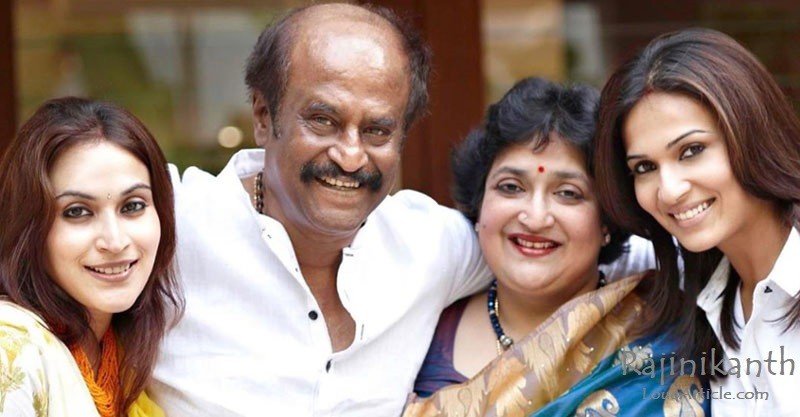
Relationships of Rajinikanth
Rajinikanth was working as a bus conductor in Bangalore, Rajinikanth met a medical student named Nirmala and started a relationship.
After seeing him perform in a stage play, she encouraged him to pursue an acting career and sent an application to the Adyar Film Institute on his behalf and unbeknownst to him.
He took up the offer and proceeded with his acting career, Rajinikanth has lost contact with her.
Family of Rajinikanth
Rajinikanth married Latha Rangachari, a student of Ethiraj College for Women who interviewed him for her college magazine.
The marriage took place on 26 February 1981, in Tirupati, Andhra Pradesh.
The couple has two daughters named Aishwarya Rajinikanth and Soundarya Rajinikanth. Latha runs a school named “The Ashram“.
Aishwarya married actor Dhanush on 18 November 2004 and they have two sons, Yathra and Linga.
His younger daughter, Soundarya, works in the Tamil film industry as a director, producer and graphic designer.
She married industrialist Ashwin Ramkumar on 3 September 2010 and have a son Ved Krishna.
In September 2016, Soundarya revealed that she and her husband had filed for divorce by mutual consent to irreconcilable differences.
In July 2017, the couple officially divorced. She has married Vishagan Vanangamudi, an actor and businessman, on 11 February 2019 at Leela Palace in Chennai.
Philanthropy of Rajinikanth
In 1980s, superstitious beliefs in Tamil Nadu created a stigma towards eye donation.
Rajinikanth took the case of campaigning in support of corneal transplantation via television and public speeches.
In 2011, Rajinikanth announced his support for the anti-corruption movement led by Anna Hazare.
Offered his commercial wedding venue, the Raghavendra Kalyana Mandapam, in Chennai free of cost for the India Against Corruption members to hold their fast.
He provided lodging in the venue for sanitary workers hired to clean up after the 2015 South India floods.
Rajinikanth’s fan associations regularly organise blood donation and eye donation camps distribute food for birthday.
Filmography of Rajinikanth
Awards, honours and recognition of Rajinikanth
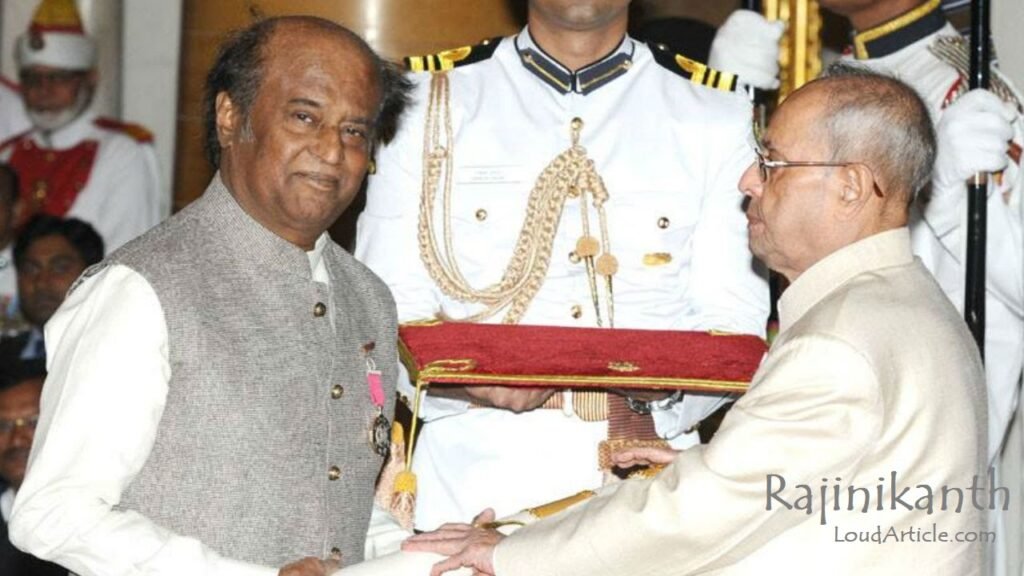
Rajinikanth has received numerous awards for many of his films, mostly in Tamil.
He received his first and only Filmfare Award for Best Tamil Actor in 1984 for Nallavanuku Nallavan.
He received Filmfare Award nominations for his performances in Sivaji (2007) and Enthiran (2010).
As of 2014, Rajinikanth has received six Tamil Nadu State Film Awards for his performances in various films.
He received numerous awards from Cinema Express and Filmfans’ Association for his on-screen performances and off-screen contributions in writing and producing.
Rajinikanth received the Kalaimamani award in 1984 and the M. G. R. Award in 1989, both from the Government of Tamil Nadu.
In 1995, the South Indian Film Artistes’ Association presented him with the Kalaichelvam Award.
He was honoured with the Padma Bhushan (2000) and the Padma Vibhushan (2016) by the Government of India.
He was selected as the Indian Entertainer of the Year for 2007 by NDTV, competing against the likes of Shahrukh Khan.
The Government of Maharashtra honoured him with the Raj Kapoor Award the same year.
He received the Chevalier Sivaji Ganesan Award for Excellence in Indian Cinema at the 4th Vijay Awards.
Rajinikanth was named one of the most influential persons in South Asia by Asiaweek.

